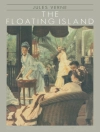Joseph Conrad’s ‘The Rover’ intricately weaves the themes of identity, colonization, and the human experience against the backdrop of the late 17th century Mediterranean. This novella, marked by Conrad’s characteristic psychological depth and vivid imagery, presents the tale of a pirate named Guillén de Castro, who navigates a world rife with moral ambiguities and existential dilemmas. Through its rich characterization and evocative descriptions, Conrad’s literary style reflects his keen observation of the psychological turmoil faced by individuals ensnared in societal turbulence, making it a poignant exploration of the human condition. Conrad, a Polish-born author who spent much of his life navigating various cultures and seas, draws on his own experiences of displacement and the complexities of identity. His travels as a sailor exposed him to the contradictions of imperialism and the struggles of those living at its fringes, providing a fertile ground for the themes present in ‘The Rover.’ This novella, penned during a period of rising nationalism in Europe, reflects his preoccupation with the moral challenges posed by colonial expansion and the often-displaced nature of the self. Readers seeking an introspective and thought-provoking narrative will find ‘The Rover’ to be a compelling addition to Conrad’s oeuvre. Its exploration of human frailty amidst the siren call of adventure resonates profoundly in today’s globalized world, making it a timeless reflection on the complexities of belonging and the choices that define our lives.
A propos de l’auteur
Joseph Conrad, born Józef Teodor Konrad Korzeniowski on December 3, 1857, in Berdychiv, Ukraine, then part of the Russian Empire, was a renowned Polish-British writer whose narrative style and anti-heroic characters have left an indelible mark on the landscape of literature. Fluent in several languages, Conrad’s early experiences in the French and British merchant navies served as a critical cornerstone for the vivid sea tales and explorations of the human psyche that comprised his literary canon. His command of English prose is remarkable, given that it was his third language, after Polish and French. Conrad’s works often delve into the complexities of morality and human nature, emphasizing the struggles of individuals facing the immensity of the natural world and the intricacies of societal pressures. ‘The Rover’ (1923), one of his final novels, exemplifies this, presenting a compelling tale of a naval officer, Peyrol, who, after a lifetime of high seas adventure, seeks solace on pastoral French land near the end of his days. Often regarded for his masterpiece, ‘Heart of Darkness’ (1899), Conrad’s narratives are marked by a rich, evocative style that continues to influence and challenge readers and scholars. He passed away on August 3, 1924, but his work endures as a significant contribution to the Western literary tradition. Conrad’s exploration of imperialism, colonialism, and the individual’s psychological depths have granted him a place among the pantheon of great literary figures.












